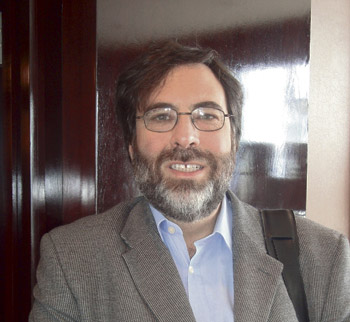When attorney Yehudah Raveh considers the opportunity he’s offering investors and compares it to the alternatives available to high net-worth individuals, he feels as if he’s got a leg up on the competition.
These are difficult times all over the world, yet Israel, for all its political and security issues, boasts a thriving economy and lots of public spending, he said. In the next few years, the government is poised to spend at least $8 billion, perhaps as much as $12 billion (all figures US) on major infrastructure projects, and the private sector is invited to get in on the action.
Enter the Israeli Infrastructure Fund (IIF), a limited partnership Raveh co-founded in 2007. It pools the capital of foreign and Israeli contributors, and invests it in various companies that develop and operate infrastructure projects.
In its first phase, the IIF invested $845 million in a half-dozen projects, including a major highway, a power plant and a gas pipeline. That fund is now closed but a second fund, IIF II, will follow the lead of the first and invest in companies that will bid on infrastructure projects, Raveh said.
And there are some big ones coming soon. The government of Israel is planning to move most of its military training centres to the Negev Desert, fulfilling David Ben-Gurion’s dream of populating Israel’s south. Some $2.5 billion has been allocated for that, said Raveh, whose expertise is in project finance.
IIF II has already invested in Hayovel Lines Ltd., which has a contract to design, build, operate and maintain Road 431, which runs south of Tel Aviv to Modi’in, for 25 years.
Another investment is in Derech Eretz, which won a contract to build, operate and maintain Highway 6 for 30 years.
Projects on the horizon include a light-rail system for Tel Aviv, with an estimated cost of $3.5 billion; a railway linking Eilat to the country’s centre that will run in the neighbourhood of $2.5 billion; a new airport to be constructed just outside Eilat.
“I’m here to meet high net-worth individuals who are capable or agreeable to invest $5 million or more in our fund,” Raveh said during a recent visit to Toronto.
He acknowledges the $5 million could be a barrier to some, and that’s where Zale Newman comes in. Newman is president of Bond Street Mercantile, a firm that makes investments in Israeli infrastructure accessible more broadly.
Bond Street has created the Canada-Israel Infrastructure Fund, a limited partnership that serves as “a feeder fund that puts together a group of smaller investors who bring together the $5 million,” he said.
Open to accredited investors, each is asked to put up at least $100,000.
IIF is one of several Israeli investments offered by Bond Street.
“Anybody who loves Israel should put a percentage of their assets in Israel,” perhaps one-10th, Newman said.
“We’re looking for investments that are steady, low risk with good returns,” he added.
He chose the IIF as a vehicle for Israeli investments because of its five-year track record as the “oldest and largest infrastructure fund in Israel.”
“This limited partnership in Canada gives the average investor the chance to partner with the biggest investors… Every doctor is a candidate, every major Jewish philanthropist is a candidate,” he said.
In effect, they can piggyback on the knowledge and contacts of well-connected Israeli players. IIF is co-managed by a company controlled by Raveh, by Harel Insurance, one of the country’s largest insurance and finance groups, and Yaron Kestenbaum, formerly director of the Public Private Partnership Projects division in the Israel Ministry of Finance.
“Less than one per cent of Canadian Jews have an investment in Israel,” said Newman. “We’re trying to strengthen this connection to Israel and give them a good return.”
The investments offer a lower risk and are safer than the Canadian stock market or real estate, he said.
IIF II closes in August, Newman said. “When they invest, the goal is to sell off within five years.”
In the best-case scenario, investors receive their capital back, a capital gain as well as an income stream for the duration of the investment, Newman said.
Bond Street also offers other funds that invest in Israel.
If Raveh is unfamiliar to many Canadians, Canadians are quite familiar to Raveh.
“The law firm has long been connected with Canada,” he said. “We represented Canadian Pacific when they had business in Israel and Potash Corporation of Saskatchewan [when it acquired] an interest in Israel Chemicals, and some individuals.”
“My first involvement with infrastructure was 15 years ago when I was approached by the chairman and CEO of Aecon Construction.”
That firm had participated in the construction of Highway 407 in the Toronto area, and they intended to participate in a tender to build a toll road in Israel, he said.
Aecon won the bid. “Our firm and me personally have been very much identified with infrastructure, and we developed a well-known expertise on infrastructure projects,” Raveh said.
His “good friend” Yair Hamburger, whose family owns about half of Harel Insurance, approached him in 2007 to put together an infrastructure fund.
In its five years of existence, the IIF has earned annual returns of more than 19 per cent, Raveh stated.
